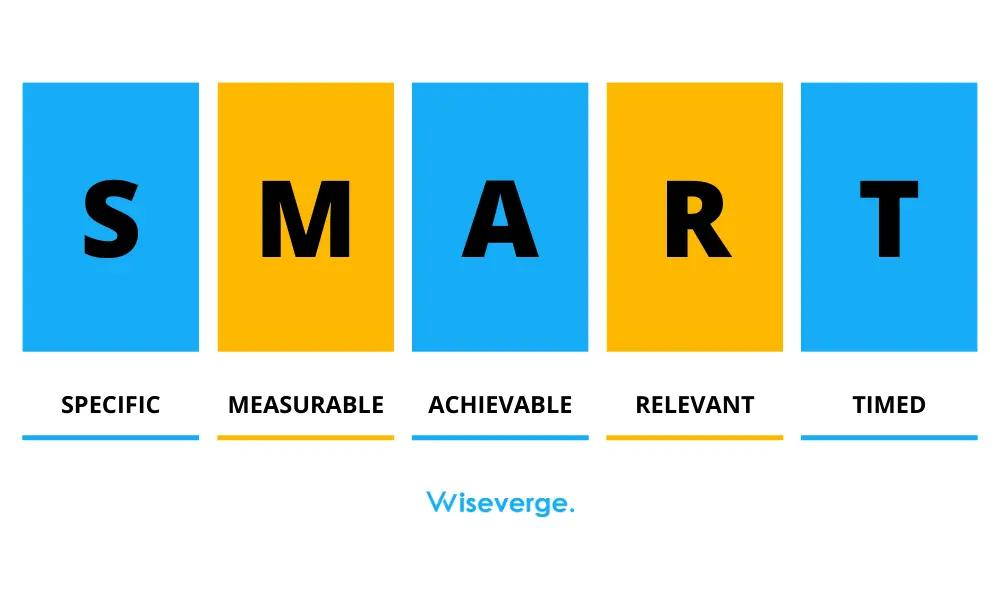Business
5 Steps to Start Your Digital Transformation Strategy

Nov 16, 2023
Everyone talks about digital transformation nowadays, but few companies really know how to apply business transformation strategies in practice.
It's no longer a question of if, but when and how companies should embark on their digital transformation journey.
If you don't start your digitization, your competitor will, and you'll fall behind in the competitive race.
With the ever-growing demand from users for connected companies and evolving consumer preferences, staying competitive means adapting and fully understanding the digital world. Whether you're a small startup or a well-established corporation, understanding the steps to initiate a successful digital transformation strategy is crucial.
In this article, we'll explore five key steps to help you transition your business from traditional to digital, aligning with current trends and digital marketing strategies to achieve your goals and objectives.
Let's start your business transformation strategy!
The Steps to Start Your Digital Transformation Strategy
Step 1: Define Clear Objectives and Goals
The first step in any successful digital transformation strategy is to define your objectives and goals.
You must identify why you're embarking on this journey and what you aim to achieve.
Whether it's increasing revenue, enhancing the customer experience, or optimizing internal operations, having a clear roadmap is essential to guide your business transformation strategy.
Ensure that your objectives are specific, measurable, attainable, relevant, and time-bound (SMART), this is crucial for your digital strategy.
Let's take a closer look at these SMART objectives:
- Specific: Your objectives should be clear and precise. Instead of a vague goal like "improve customer experience," consider specifying it as "reduce customer response time by 20% within the next six months." Specificity ensures that everyone involved understands the target.
- Measurable: To gauge your progress and determine success, your objectives must be measurable. For example, if your objective is to "increase revenue," quantify it by saying "increase monthly revenue by 15% compared to the previous year." This allows you to track your success and make data-driven decisions.
- Attainable: While setting ambitious goals is admirable, they should also be attainable within the constraints of your resources and capabilities. Ensure that your digital transformation goals are realistic. For instance, if you have limited technical resources, setting a goal to "implement AI-powered customer support" might not be attainable in the short term.
- Relevant: Your objectives should align with your overarching business goals and the broader context of your digital transformation. It's vital to ensure that the goals you set are relevant to your organization's mission and vision. If your business focuses on cost-cutting, setting a goal to "improve customer experience" might not be the most relevant objective.
- Time-bound: To create a sense of urgency and provide a timeline for achieving your objectives, make them time-bound. For example, setting a goal like "optimize internal operations" is vague, but stating "reduce inventory holding costs by 10% in the next quarter" adds a specific timeframe for achieving the objective.

By incorporating SMART criteria into your objective-setting process, you not only create a clear roadmap for your digital transformation but also ensure that your efforts are directed toward meaningful and achievable outcomes.
SMART objectives will help you stay focused and track your progress throughout the digital transformation process, increasing the likelihood of a successful transition to the digital realm.
We also discussed SMART objectives in another article on the Wiseverge blog about Minimum Viable Product (MVP): MVP Development in 4 Simple Steps
Step 2: Understand the Digital Trends
To navigate the digital landscape effectively, you need to thoroughly understand it.
This involves staying up-to-date with the latest digital trends and emerging technologies in your industry.
By keeping an eye on digital marketing trends, you can adapt your strategies to meet changing consumer expectations.
Additionally, assess your competitors' digital initiatives to identify what works and what doesn't. By gaining insights into the digital landscape, you can make informed decisions and stay ahead of the curve.
In short:
- Understand digital landscape
- Follow digital marketing trends
- Adapt strategies to meet customer expectations
- Assess competitors
- Make informed decisions
- Stay ahead of the curve
But how to stay updated about digital trends?
Here are three ways to stay informed about market trends:
- Industry News Aggregators: Subscribe to industry-specific news aggregators and newsletters. These sources compile the latest developments, trends, and best practices in your field, providing you with a daily or weekly digital newspaper customized to your interests.
- Networking and Industry Events: Attend industry conferences, webinars, and seminars. These events offer opportunities to network with peers, experts, and potential collaborators. They also allow you to discuss trends, share insights, and even discover something new, be it knowledge or dance moves, at a virtual conference after-party.
- Market Research Reports: Invest in market research reports and studies. These documents offer in-depth analysis of market trends, consumer behavior, and competitive landscapes. Reading one is akin to taking a deep dive into the digital ocean with a professional snorkel guide.
By incorporating these methods into your strategy, you'll not only understand the digital world but also be equipped with the knowledge and insights needed to make informed decisions and keep your digital transformation journey ahead of the curve.
Remember, staying informed doesn't have to be a chore – it can be an exciting adventure in itself!
Step 3: Create a Digital Strategy
Once your objectives are defined, and you understand the digital trends, it's time to create a digital strategy tailored to your business.
The Digital Strategy should encompass various aspects
- Online Presence: Your online presence is your digital storefront. It includes your website, social media profiles, and any other digital platforms where your business is represented. A well-crafted online presence ensures that potential customers can find and engage with your brand easily.
- Customer Engagement: Engaging your audience is crucial in the digital era. This involves building meaningful relationships with your customers through personalized interactions, providing valuable content, and addressing their needs promptly. Happy customers are more likely to become loyal advocates for your brand.
- Data Analytics: Data is the lifeblood of the digital world. By collecting and analyzing data, you can gain insights into customer behavior, market trends, and the effectiveness of your digital strategies. This information empowers you to make data-driven decisions and fine-tune your approach.
- Digital Marketing Campaigns: Digital marketing campaigns encompass a wide range of activities, from search engine optimization (SEO) to content marketing, social media advertising, email marketing, and more. These campaigns are designed to help you connect with potential customers, engage your existing audience, and measure the effectiveness of your digital initiatives.
Step 4: Embrace Digital Marketing
Digital marketing strategy plays a pivotal role in the success of your digital transformation.
Here's a closer look at some key digital marketing strategies:
- SEO (Search Engine Optimization): SEO is about optimizing your online content to make it more discoverable in search engines like Google. By improving your SEO, you increase your visibility and attract more organic traffic.
- Content Marketing: Content is king in the digital world. Creating valuable and relevant content helps you build trust with your audience, position your brand as an industry authority, and drive traffic to your website.
- Social Media Advertising: Social media platforms offer powerful advertising options to reach your target audience. These platforms enable you to run highly targeted ad campaigns to boost brand awareness and engagement.
- Email Marketing: Email remains an effective way to nurture leads and maintain customer relationships. Personalized email campaigns can drive conversions and keep your audience informed about your latest offerings.
Step 5: Implement and Adapt
With your objectives, digital landscape understanding, strategy, and marketing plan in place, it's time to implement your digital transformation.
Effective implementation is crucial, but equally important is the need to adapt and evolve continuously.
The digital world is dynamic, with new trends and technologies emerging constantly.
Regularly evaluate the results of your digital efforts and make necessary adjustments to stay competitive and relevant. Continual improvement is key to long-term success in the ever-changing digital landscape.
Steps for Achieving Long-Term Success in Digital Business Transformation
Embarking on a digital transformation strategy is an essential step for any business looking to thrive in the modern world.
By defining clear objectives, understanding the digital landscape, creating a tailored strategy, embracing digital marketing, and continuously adapting, you can successfully transition your traditional business into the digital realm.
Keep an eye on emerging trends and be prepared to evolve as the digital world continues to change.
Your digital transformation will help you meet your business goals and objectives, ensuring long-term success in a digitally-driven world.
And remember, having the right partner by your side can make all the difference in your digital transformation journey.
At Wiseverge, we are experts in software development, consistently creating mobile apps and web development solutions for numerous clients over the years.
Our goal is to assist you in increasing profits and achieving business growth. We are committed to keeping you ahead of market trends and ensuring success in the ever-evolving digital landscape. Your success is our priority, and together, we can make your digital transformation an amazing success!
While everybody talks about digital business transformation, we take action.
Wiseverge - Global Software Development Agency
More articles from our blog
It seems you’re ready to take the next step
Talking with us it's free and we will probably give awesome tips.
About Us





